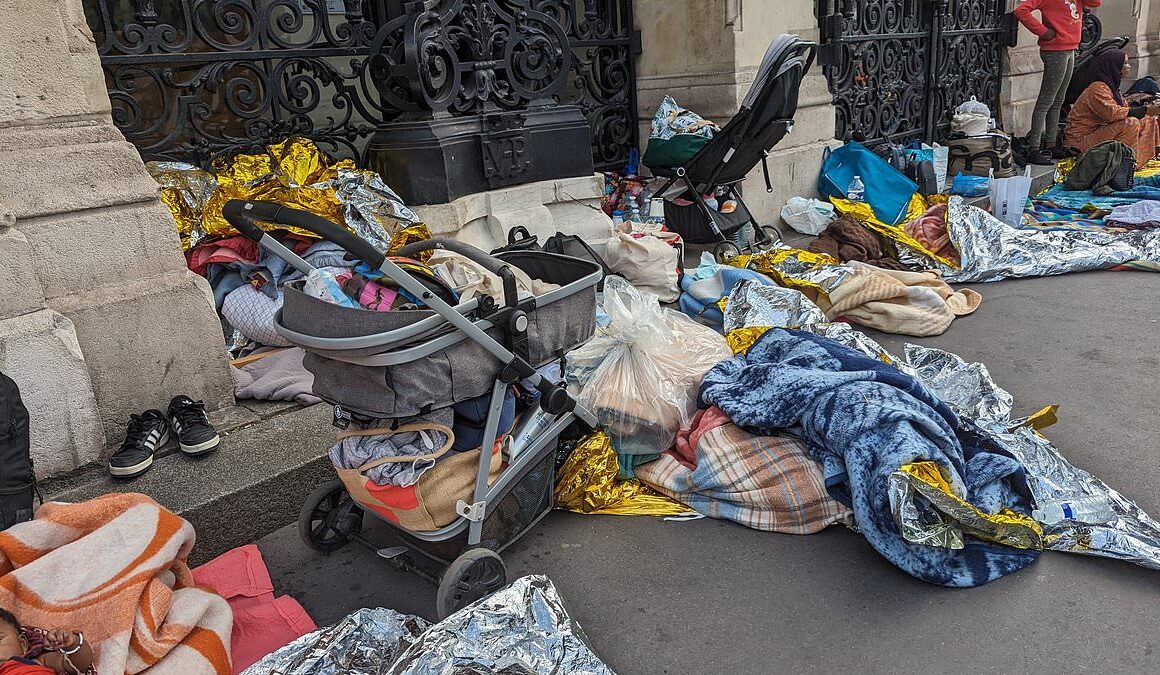Homeless people took to the streets of Paris last night on the eve of the 2024 Olympic Games to demand a solution to the city’s ongoing housing crisis.
As the world’s gaze turns to the French capital, dozens of protesters were seen holding placards, chanting and banging drums outside the city hall.
Others propped up their tents and lay down on their mattresses in front of the government building as they demanded better conditions for those forced to live on the streets.
On Friday, the Games will hold its Opening Ceremony along the Seine, celebrating with hundreds of athletes from around the world.
While excitement has been building for the historic event, the run-up to the global sporting event has been marred by demonstrations in Paris.

Protesters calling for a solution to Paris’ housing crisis hold placards outside City Hall yesterday

A group of demonstrators gather outside City Hall on the eve of the Oympics

Homeless people living on the streets of Paris form part of the protest outside City Hall
In May, under-fire French President Emmanuel Macron was accused of ‘social cleansing’ after riot police smashed up tents of homeless young men staying along the river before they were carted off hundreds of miles away.
It was part of a plan to ‘clean up’ the city, dismantling tents and shelters, ahead of the Games.
Almost half (44 per cent) of homeless people in France are found in Paris, with official estimates placing the total around 150,000.
And in the past 13 months leading up to the Olympics, more than 12,545 homeless people, refugees and sex workers have been ‘moved on’.
In the Stalingrad area of the city, hordes still gather under the shelter of the metro tracks and along the Saint-Martin canal, with haphazard camps strewn with dirty mattresses, food containers and cardboard boxes.

Protesters bang on a bin as they demonstrate outside City Hall

Almost half (44 per cent) of homeless people in France are found in Paris, with official estimates placing the total around 150,000
Charlotte Kwantes, of the humanitarian charity Utopia 56, said previously that Paris lacks the infrastructure to help and house them, particularly immigrants who have been granted asylum.
Those who lose their asylum subsequently lose their right to the state-funded accommodation offered during the asylum process.
‘They see them as undesirable, so they’re trying to hide them from public view,’ she adds.
‘If just 1 per cent of the Olympic budget was used to help them, instead of putting them back on the streets elsewhere, this would make a huge difference.’
Another group whom city officials tried to move on in the pre-Olympics scramble are the ‘bouquinistes’, who have sold second-hand books from their iconic green boxes on the banks of the Seine for more than 400 years.








